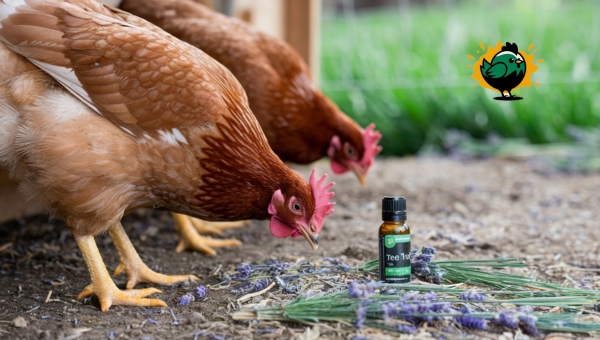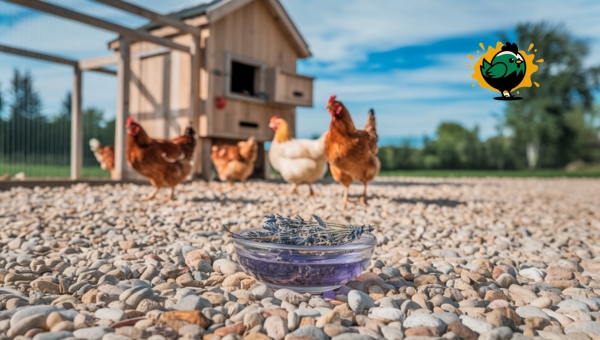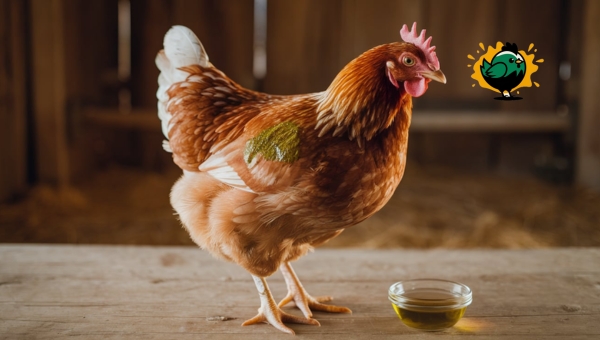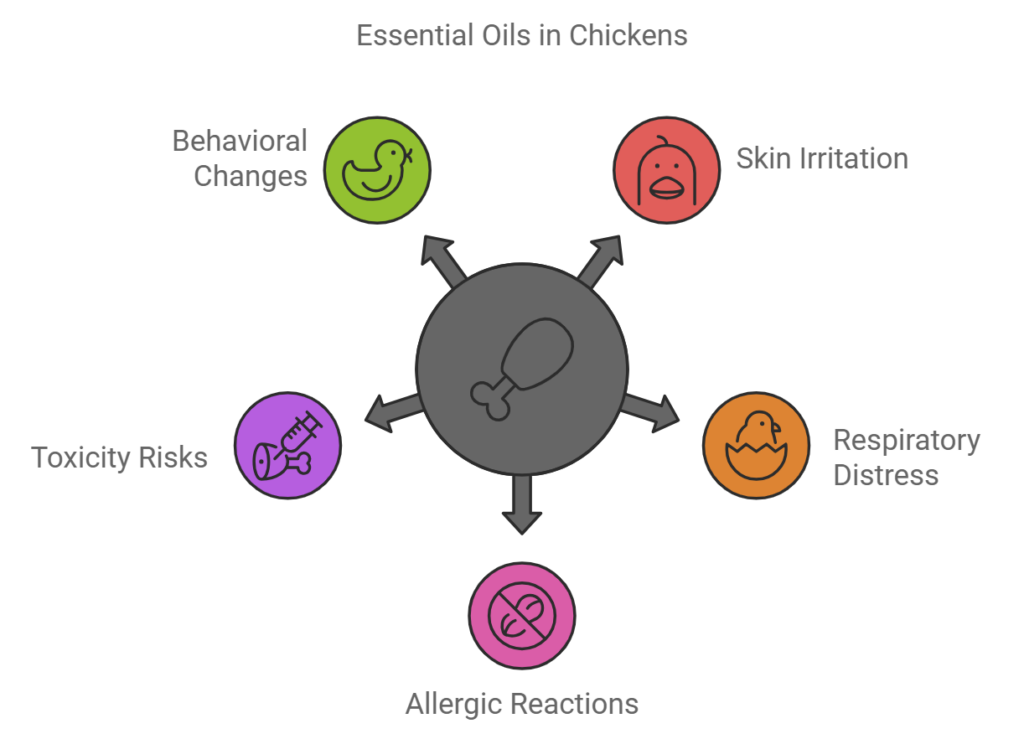Lavender and Tea Tree Oil for Chickens | A Game-Changer

A peaceful chicken coop where every bird is calm, healthy, and thriving. This isn’t a fantasy—it’s achievable with the right natural remedies. Lavender and tea tree oil for chickens offers a holistic approach to poultry care, ensuring your flock enjoys a stress-free and healthy environment.
These oils are not just popular for their pleasant aromas; they pack a punch in promoting well-being among your feathered friends. Dive into the world of essential oils and discover how these natural solutions can transform your chicken-keeping experience. Get ready to unlock the secrets of a harmonious and vibrant coop life!
Benefits of Lavender Oil for Chickens
Lavender oil offers a range of benefits for chickens, making it a popular choice among poultry enthusiasts. This essential oil is not only known for its soothing scent but also for its ability to enhance the well-being of your feathered friends. Let’s dive into how lavender oil can benefit chickens in various ways.

Calming and Stress Relief
Chickens, like any other animals, can experience stress. Whether it’s due to changes in their environment or interactions with other chickens, stress can affect their overall health. Lavender oil is known for its calming properties, which can help reduce stress levels in chickens. By diffusing lavender oil near their coop or adding a few drops to their bedding, you can create a more relaxing atmosphere for them.
Respiratory Health
Lavender oil can also be beneficial for the respiratory health of chickens. Its soothing aroma may help in clearing respiratory passages, making it easier for chickens to breathe.
- Using a lavender oil spray in the coop can support better air quality.
- Adding a few drops of lavender oil to water can promote respiratory comfort.
Pest Repellent Properties
Keeping pests away from chicken coops is crucial for maintaining a healthy environment. Lavender oil acts as a natural pest repellent, helping to deter insects and mites that may harm chickens. By applying diluted lavender oil around the coop or using it in a spray form, you can help keep pesky invaders at bay.
Benefits of Tea Tree Oil for Chickens
Tea tree oil is a versatile essential oil that can offer multiple benefits for chickens. It is a natural solution that can help keep your flock healthy and happy. Let’s explore how tea tree oil can support your chickens in various ways.

Antibacterial and Antifungal Effects
Tea tree oil is well-known for its antibacterial and antifungal properties. It can help protect chickens from harmful bacteria and fungi, reducing the risk of infections. Using tea tree oil can contribute to a cleaner and healthier environment for your poultry.
Wound Healing Support
Tea tree oil can also play a role in supporting the healing process of wounds in chickens. Its natural properties assist in cleaning wounds and reducing inflammation. Applying diluted tea tree oil on minor cuts can help speed up recovery and prevent infections.
Improved Immunity
Incorporating tea tree oil into your flock’s care routine may also aid in enhancing their overall immunity. By reducing the presence of harmful microorganisms, tea tree oil helps in maintaining a stronger immune system. A healthy immune system can lead to better resistance against common poultry diseases.
Also Read: Vitamins for Chicken – Boosting Poultry Health
How to Safely Use Lavender and Tea Tree Oil for Chickens
Using oils such as lavender and tea tree for chickens can offer numerous benefits, but it’s important to apply them correctly to avoid any potential harm.
Understanding proper dilution and application methods is key, alongside being aware of essential considerations and precautions. Let’s dive into the methods and aspects that ensure the safe use of these oils on your feathered friends.
Dilution and Application Methods
When applying lavender and tea tree oil to chickens, it is crucial to dilute them properly to ensure safety and effectiveness.
Here are some recommended methods:
- Dilution: Mix oils with a carrier oil like coconut oil. A common ratio is 1-2 drops of essential oil per tablespoon of carrier oil.
- Spraying: Combine the diluted oil mixture with water in a spray bottle. Mist the coop lightly, avoiding direct contact with chickens.
- Diffusion: Use an essential oil diffuser in the coop area to allow the fragrance to disperse naturally, creating a calming environment.
Considerations and Precautions
Before using lavender and tea tree oil on chickens, it’s essential to bear in mind some key considerations and precautions:
- Testing: Conduct a small patch test on a single chicken to ensure there is no adverse reaction before widespread use.
- Frequency: Limit the frequency of oil applications to prevent potential irritation or toxicity.
- Observation: Monitor chickens for any signs of distress or discomfort after application, and discontinue use if any negative reactions occur.
By following these methods and precautions, you can safely incorporate lavender and tea tree oils into your chicken care routine, enhancing their well-being.
Potential Concerns and Side Effects
When using lavender and tea tree oils for chickens, it’s important to be aware of potential issues that might arise.

While these oils offer numerous benefits, some concerns and side effects should be considered:
- Skin Irritation: Some chickens may experience skin irritation when exposed to concentrated oils. Always ensure oils are properly diluted before application.
- Respiratory Distress: The strong scents of these oils can sometimes lead to respiratory issues in chickens, particularly if used in excessive amounts or in poorly ventilated areas.
- Allergic Reactions: Just like humans, chickens can develop allergies. Monitor for any signs of allergic reactions, such as excessive scratching or swelling.
- Toxicity Risks: Tea tree oil, in particular, can be toxic if ingested in large quantities. Always apply externally and keep it out of reach from curious beaks.
- Behavioral Changes: Some chickens may react differently to the scents, potentially causing behavioral changes. It’s advisable to observe their reactions closely when first introducing the oils.
By keeping these potential concerns in mind, you can better ensure the safety and well-being of your chickens while using these oils.
Conclusion
Lavender and tea tree oil for chickens offers a range of benefits—from calming and stress relief to supporting respiratory health and enhancing immunity.
While these oils can be incredibly helpful, it’s important to use them safely and correctly. Proper dilution and application are crucial to avoid potential side effects. By integrating these natural oils thoughtfully, chicken owners can ensure their flocks remain healthy and content.
If you’re eager to learn more about natural remedies and tips for chicken care, explore our other informative blogs. Dive into a world of knowledge that will help you provide the best care for your feathered friends.
